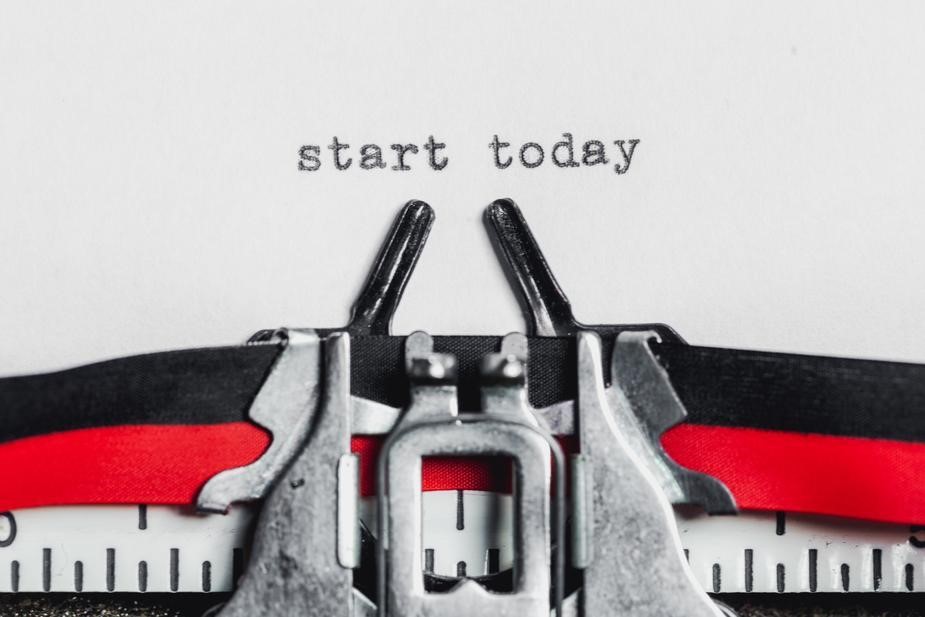
06 Apr 4 Steps to Begin to Make a Career Change
So you’ve been thinking about a career change – you want to begin to make a career change, but don’t know how to start. It’s a familiar enough situation, one that I see everyday in my conversations with scores of professionals. Every day you drag yourself to work, work feels uninspiring to say the least, or you’ve given it your all and now want to do something different. But what is that something and how is it all going to fall into place?
Research shows that changing responsibilities at work is listed as one of the most stressful life events on the Holmes and Rahe scale for most stressful life events, but actually starting a new job is not. So we can infer that to begin a career change can be a major stressor, especially if you are new to your field and unsure of what might be expected of you.
And yet, career changes are inevitable. In the future of work, we need to prepare for multiple career changes over our lifetimes. So here are 4 steps we find that work every time we are faced with the prospect of career change – this is how we can begin to make a career change, even in the midst of uncertainty.
1) Look at What’s Ending
When you’re about to begin career change, think about this “Every new beginning comes from some other beginning’s end.” – Seneca.

To begin a career change, you have to make an ending somewhere else
You may believe that beginnings are about excitement and hopefulness. Your heart and mind are swirling in the fantasy of the new beginning – how things are going to look so different from how they are now and how wonderful that will be. But there’s also another voice inside you which you may be ignoring at your own peril – that which is telling you about what needs to end, before you can begin to make a career change.
Maybe it’s the end of something familiar and comforting, maybe the promise of a new career as you begin to make a career change, also means the end of an old work/professional identity. Especially, at mid-career, endings precede new beginnings and it’s vital to acknowledge and accept what’s going to end. This clears the space (mentally and emotionally) for you to start again, to begin the process of career change.
Read also: Endings and loss brought about by mid-career change and how to deal with them
Think about and journal your answers to these questions
- As you go through ending one kind of career (or if you are still), what parts of yourself are you letting go of?
- What feelings come up for you during this letting go/ending phase?
- What are you going to miss the most, even the littlest of things? What familiar and comforting things will you miss?
- Your career until now also gave you some GIFTS – what are some of those gifts which you want to keep with you and take with you? E.g. friends, tangible resources, ways of work, awareness of certain abilities etc
And allow yourself to grieve these losses before you can compensate for them in new ways.
Read also: How can journaling help you in making career changes – The Write Way Forward for Career Transitions
2) Create some space, a pause between the old and the new
“Now and then it’s good to pause in our pursuit of happiness and just be happy.” – Guillaume Apollinaire

A pause helps you to find the energy to begin a career change
You don’t have to rush headlong into a career change. In fact, you can begin to make a career change far more assuredly, and with clarity, if you can create a space or a pause between the old and the new. This is a space for reflection and a preparation for new action. It could take many forms and it doesn’t have to be about work – for instance travel to a new place, or do something you have never done before, reduce your work hours and use that time to engage in a hobby or creative pursuit, learn a new skill.
One of the people I coached, took a pause during which she tried her hand at new experiences. She went on a 300 km solo drive, something she had never done before. Such experiences are powerful, not only do they allow you to get in touch with a different side of yourself, they also shore up your confidence to take new actions. And that definitely spills over into what you need to do to begin to make a career change.
3) Ask someone to walk with you
Anything is possible when you have the right people to support you.” – Misty Copeland
When you begin to make a career change, you can be wracked by doubts, fears and confusions. When you can start to verbalize and talk these fears and doubts aloud, they don’t appear half as threatening! Seek out friends with whom you can share your concerns and you will find yourself feeling lighter and more energized to make the beginning.
While it’s great to have friends who can give you a patient ear, to begin to make a career change, you may also do well to enlist the support of a coach. A coach is unbiased and invested in making you successful – he/she is also trained to support you through career change, asking you the right questions, expanding your perspective, helping you gain clarity about your strengths and skills and what matters to you and crafting together a narrative which aids you in your career change.
Read also: 6 Reasons why you need to hire a coach to help you with your mid-career change
Coaching can be invaluable at the start, giving you the energy, confidence and push even to make you begin your career change process.
4) Commit to action, not to the perfect action
“Commitment is an act, not a word.” – Jean Paul Sartre

Taking action is the best form of commitment to begin your career change
What scotches many a career change even before it begins? The false notion that you have to take the perfect action. To begin to make a career change, you only have to commit to action, not to the perfect action. Commitment to action, guided by reflection, will get you going, and you will find your way through the haze of confusion and uncertainty.
Every career change happens one step at a time and all that is required from you is the commitment to take that one step. What could that look like?
Reach out to that friend or college classmate who’s doing work in a space you’re curious about.
Sign up for a new class or weekend activity.
Work through the skills exploration worksheet to understand what your transferable skills really are.
Write down 10 possible selves that you may want to be after a career change and what it would take to make that happen. Then step back and allow these ideas to sink into you a bit.
Ask a friend for a recommendation for a career coach.
The Planned Happenstance theory of Careers by John Krumboltz (professor of Education & Psychology at Stanford University) says that to deal with career change in a rapidly changing labour market, you can’t always plan the perfect course of action. But what you can do is commit to taking action amidst uncertainty, guided by your curiosity, learning orientation, optimism and flexibility.
“For the things we have to learn before we can do them, we learn by doing them.” – Hannah Arendt
Career change can’t be begun by knowing about it completely – yet if you can work on developing just a little bit of curiosity, clarity, courage and confidence, you will be well on your way to begin to make a career change successfully.

Kavita, an alumna of IIM Ahmedabad, brings 20 years of experience in Experiential Learning, Coaching, Personal Growth & Change. Her forte is Career Transition Coaching and Leadership Development for mid-senior individuals, helping them find success and fulfilment at work . She also teaches Career & Self Development courses at leading management institutes including IIM Kozhikode, IIM Udaipur, IIM Indore and at the IITs.

